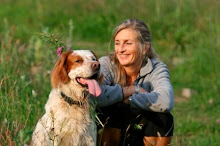 Losing a beloved pet – even for a few hours – is a very distressing experience for pet and owner alike but research shows that reuniting with your pet is much more successful if it can be easily identified. The following steps will help in this process.
Losing a beloved pet – even for a few hours – is a very distressing experience for pet and owner alike but research shows that reuniting with your pet is much more successful if it can be easily identified. The following steps will help in this process.
First, make sure your pet is wearing an identification tag with your phone number and their name on it and also. Also, ask your vet to microchip your pet, if it hasn’t been done prior to you acquiring the pet. This will identify it for life and details are recorded on a database that will be used to reunite pet and owner in the event that your pet gets lost. Remember to update your details if you change address. Identification tags and micro chipping may be a requirement in your area. Finally, photograph your pet regularly in case you need to use the photo on a “missing” flyer later on.
If your pet does go missing, don’t panic! Look in and around your house first, checking all nooks and crannies including washing machines, clothes dryers and drains. Your dog might have accidently been locked in a room and cats are known for finding excellent hiding holes and ignoring calls.
Dogs and cats rely on their sense of smell to locate their home so place some of your unwashed clothes, your pet’s litter box or favourite toys outside your door to help guide them home.
Door knocking in your local area can also help. While walking the streets, carry your pet’s favourite biscuits in a tin that you can rattle while calling their name. Also carry a flashlight to check dark spaces. A frightened or injured animal will hide and not necessarily come when called.
Phone your local council, animal shelters and vet clinics to leave information on your pet and your contact details, and then distribute flyers with the latest photo and description of your pet in the local area. Remember to withhold several identifying marks of your lost pet in case you need to verify that a person has actually found your pet later on.
Dogs can walk a long way from home so place advertisements in the “Lost and Found” section of your newspaper. There are also sites on the internet that allow you to post a description and photo of your lost pet for free.
Last but not least, visit all the animal welfare shelters and council pounds in surrounding areas every few days. Remember that your description of your pet may not be the same as how the shelter is describing it. State laws vary as to how long an animal has to be kept before it can be rehoused or euthanased.
Thursday, May 28, 2009
PET HINT - Locating a lost pet
Posted by Tamara Shardlow at 9:22 AM 0 comments
Labels: cat confinement, grief, identification, laws, pet loss
Saturday, February 14, 2009
Disasters and the importance of identification
 The recent bushfires in Victoria tragically claimed the lives of many, including my honours supervisor from La Trobe University who I had remained good friends with and whom I will miss very much. As well as the loss of human life, many animals, both wild and domestic lost their lives also. Although many animals fled and managed to survive, the difficult task of reuniting domestic animals, especially cats and dogs, with their owners can be made even harder if the animal lacks identification.
The recent bushfires in Victoria tragically claimed the lives of many, including my honours supervisor from La Trobe University who I had remained good friends with and whom I will miss very much. As well as the loss of human life, many animals, both wild and domestic lost their lives also. Although many animals fled and managed to survive, the difficult task of reuniting domestic animals, especially cats and dogs, with their owners can be made even harder if the animal lacks identification.
Research which looked at the aftermath of Hurricane Katrina found that owners that were reunited with lost pets had lower rates of depression than those that were not. This demonstrates the vital companionship role our pets play. Indeed, I have read many stories over the past week telling of Victorians trying to save their pets from the bushfires. The story that stayed with me was that of the woman being winched up to a rescue helicopter who unclipped her harness and fell to the ground to save her dog, both survived. Sadly, not all of these stories had a happy ending as some people died trying to save their animals.
For those humans and animals who survived the fires it is important that they are reunited as soon as possible. Animal shelters are currently working to make this happen however their efforts are hampered when animals lack identification. Microchips and identification tags are relatively inexpensive forms of identification and can help to reunite lost pets with their owners quickly. The important thing to remember is to update your details if you move house or change your phone number. For more information on lost and/or injured pets see the RSPCA, VAAT and DPI websites.
Posted by Dr Kate Mornement at 1:59 PM 0 comments
Labels: Disaster, identification, renting with pets






